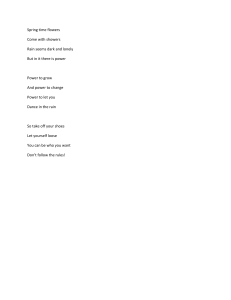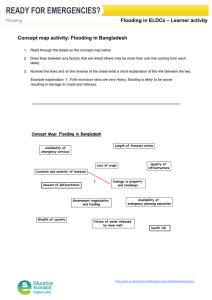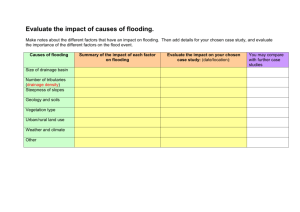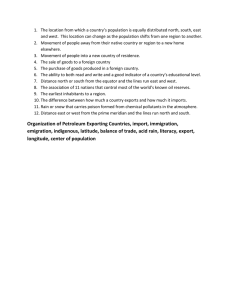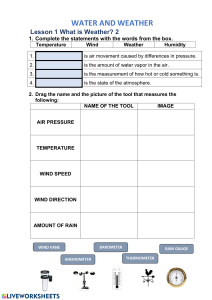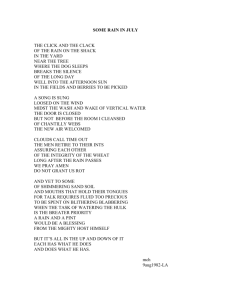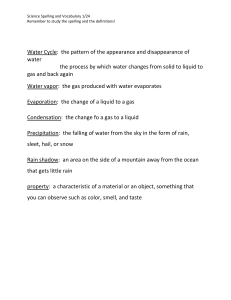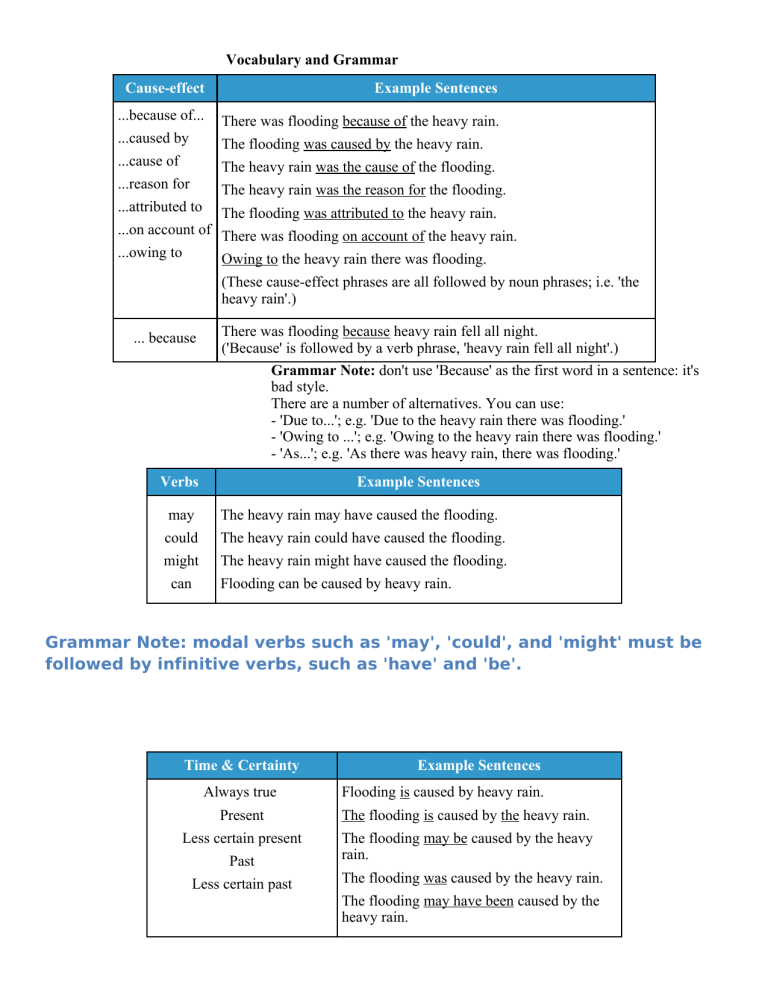
Vocabulary and Grammar
Cause-effect
Example Sentences
...because of...
There was flooding because of the heavy rain.
...caused by
The flooding was caused by the heavy rain.
...cause of
The heavy rain was the cause of the flooding.
...reason for
The heavy rain was the reason for the flooding.
...attributed to
The flooding was attributed to the heavy rain.
...on account of There was flooding on account of the heavy rain.
...owing to
Owing to the heavy rain there was flooding.
(These cause-effect phrases are all followed by noun phrases; i.e. 'the
heavy rain'.)
... because
There was flooding because heavy rain fell all night.
('Because' is followed by a verb phrase, 'heavy rain fell all night'.)
Grammar Note: don't use 'Because' as the first word in a sentence: it's
bad style.
There are a number of alternatives. You can use:
- 'Due to...'; e.g. 'Due to the heavy rain there was flooding.'
- 'Owing to ...'; e.g. 'Owing to the heavy rain there was flooding.'
- 'As...'; e.g. 'As there was heavy rain, there was flooding.'
Verbs
Example Sentences
may
The heavy rain may have caused the flooding.
could
The heavy rain could have caused the flooding.
might
The heavy rain might have caused the flooding.
can
Flooding can be caused by heavy rain.
Grammar Note: modal verbs such as 'may', 'could', and 'might' must be
followed by infinitive verbs, such as 'have' and 'be'.
Time & Certainty
Always true
Example Sentences
Flooding is caused by heavy rain.
Present
The flooding is caused by the heavy rain.
Less certain present
The flooding may be caused by the heavy
rain.
Past
Less certain past
The flooding was caused by the heavy rain.
The flooding may have been caused by the
heavy rain.
Adverbs
Example Sentences
Possibly
The rain may possibly cause flooding.
certainly
The rain will certainly cause flooding.
perhaps
Perhaps the rain will cause flooding.
definitely
The rain will definitely cause flooding.
probably
The rain will probably cause flooding.
undoubtedly
The rain will undoubtedly cause flooding.
Grammar Note: use 'will' with adverbs that show a high probability, such
as 'undoubtedly', 'definitely' and 'probably'. For other adverbs, which show
a smaller possibility, use 'may', 'could' or 'might'; e.g. The rain could,
perhaps, cause flooding.' or 'The rain may possibly cause flooding'.
Also, the position of the adverb is usually just in front of the verb for
adverbs of possibility and probability. This is because the adverb gives
more information about the verb. This is different from adverbs like
'Unfortunately', which give information about the whole sentence; e.g.
'Unfortunately, the heavy rain caused flooding.'
Other Cause and Effect Phrases:
Causes
There are several reasons for this. Firstly, ...
Other causes played a part. Firstly,
A key factor was... ('key' means 'important')
This is due to ...
This is a reflection of...
Effects
As a result, ...
Consequently, ...
This meant that...
One consequence of this is that ...
Grammar Note:
Don't write 'are lacking of ...' as a cause or effect. Use 'there is a lack of ...'
OR 'they are lacking in ...'
For more information on how to use 'lack (of)' correctly, see 'Lack' or
'Lack of'? - an explanation and an exercise.
0
